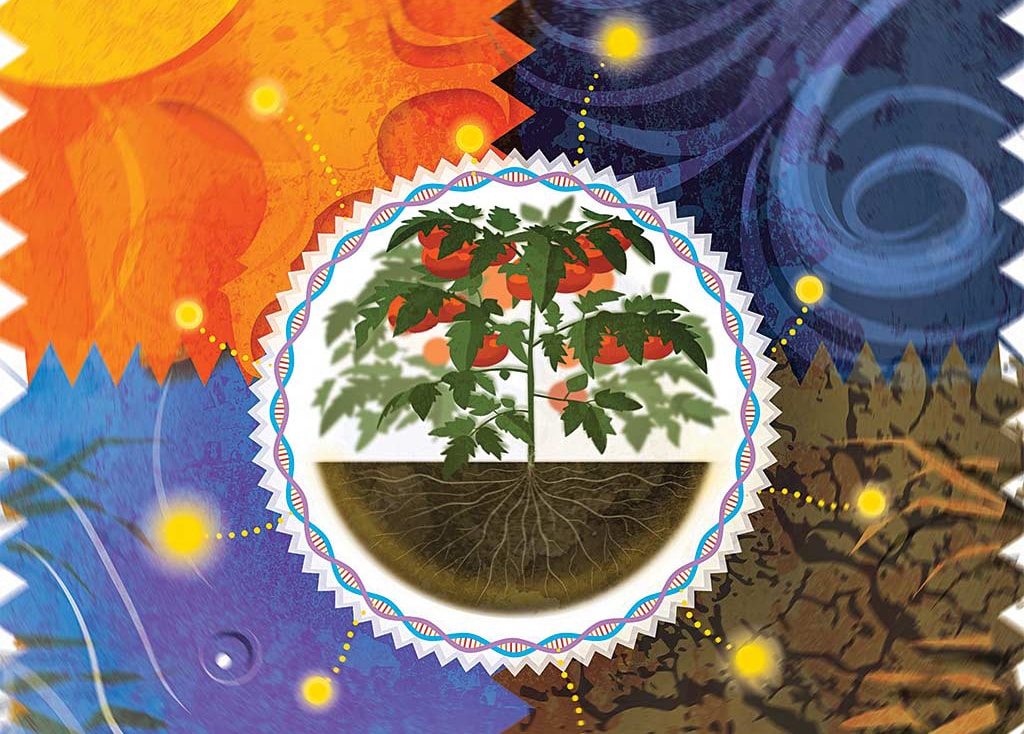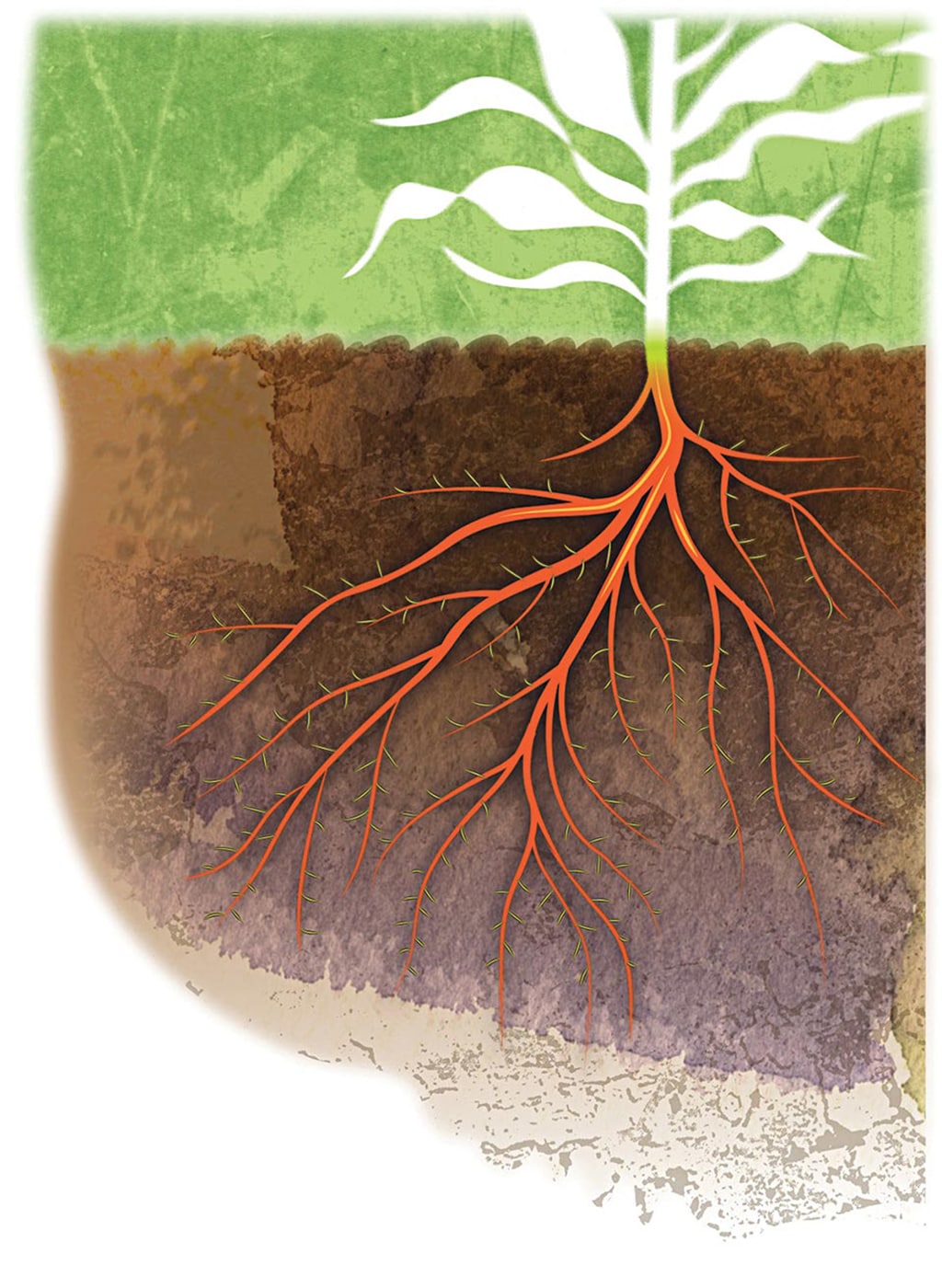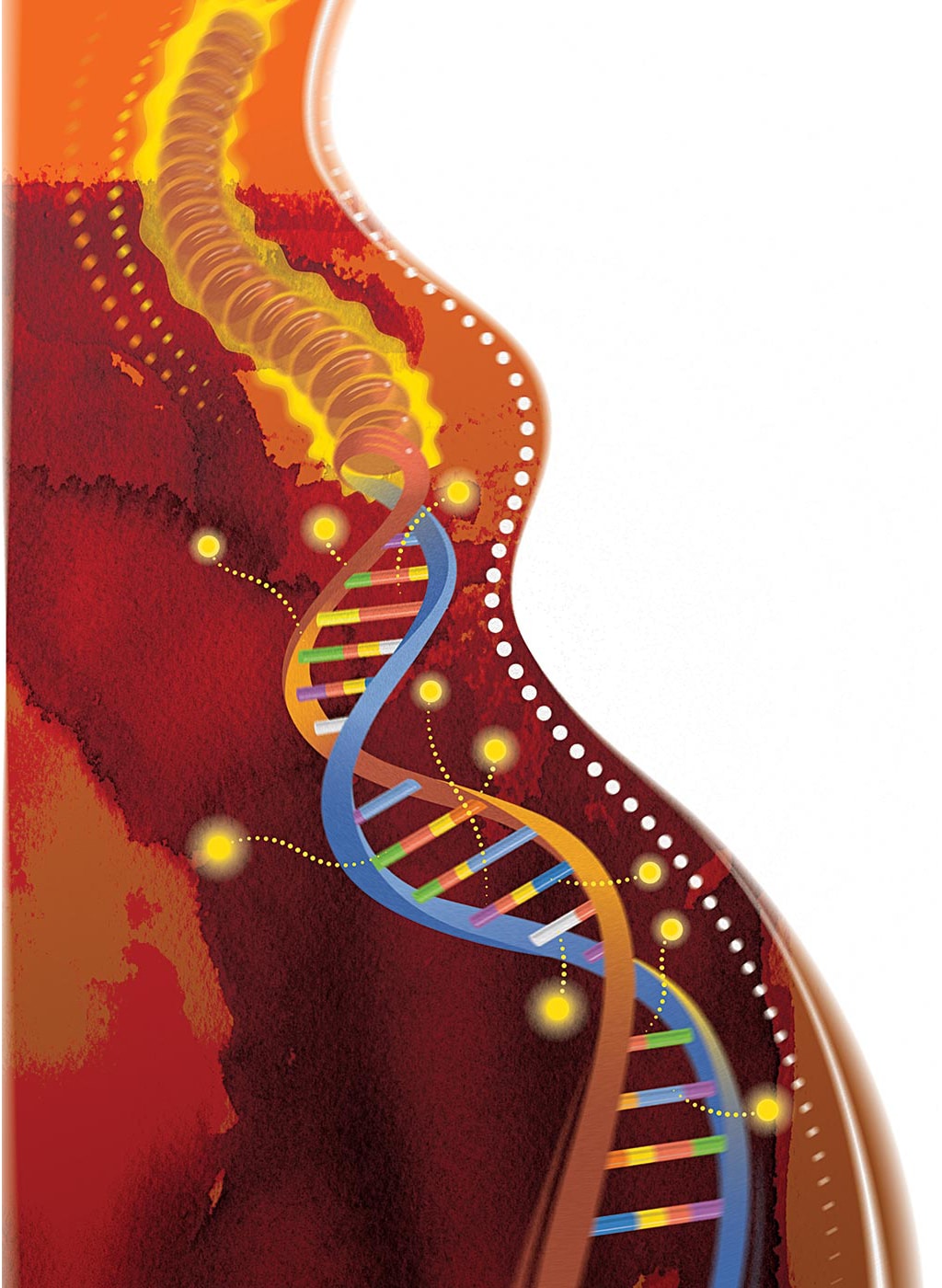Agriculture, Sustainability April 01, 2022
Engaging Plant Armor
Epigenetics prepares crops to face the worst and still yield.
It's been said we only use 10 percent of our brain. Totally false. What plants (and animals) truly only use a small percent of is their genetic capability. Buried in a plant's genetic code are abilities such as withstanding heat stress and performing better in drought conditions.
By manipulating epigenetic expression, plant scientists have learned to activate these abilities—abilities that stay engaged in subsequent generations. This science isn't about breaking yield records, though, it's about achieving yield stability.
"There are two urgent needs in crop production—yield stability and resilience. We need crops to be more plastic, more able to recover from a week of drought without losing what was put into them," says Sally Mackenzie, genomics expert and director of the Penn State Plant Institute. The plant scientist has worked out how to significantly boost a plant's bounce-back power using epigenetic manipulation.
What is epigenetics? Epigenetics refers to the genomic neighborhood that surrounds genes and controls how they are expressed. This local process controls how genes respond to environmental change. It could be a plant that grows better in shade or a multi-generational northerner unbothered by subzero temperatures. Sometimes these changes are strong enough to confer a stable, heritable, expressed phenotype.
Mackenzie and her team have discovered how to stimulate a stronger epigenetic response to stress in plants. The result is crop genetic lines carrying epigenetic memory of stress and prompting future generations to express more resilience-based traits. This memory holds for around five generations, or indefinitely in vegetatively propagated plants, like strawberries.
These changes aren't the result of altered DNA or genetic combinations. Change occurs by merely opening pathways between existing genes. This is no country lane with one or two turns. Establishing a route capable of effecting real change is like navigating a complex, multi-turn route through a busy city including errands. One stop may be the gym, then a grocery store, the sunglass kiosk at the gas station, etc., all of which add up to a better-prepared plant.
"When we think about crop genetics, we are only referring to gene combinations of a specific line. Breeders create new varieties by recombining those genes to give new features or traits," Mackenzie explains. "Epigenetic trait expression doesn't result from changing the gene combination, it's changing how the genes themselves are expressed."
Plants sense their environment and sense patterns of change, she says. This information triggers a cascade of events. The plant undergoes epigenetic reprogramming, changing the epigenetic roadmap to access its genetic bag of tricks for dealing with changing environments. Mackenzie and her team have studied these responses and discovered one key to triggering stress response—the MSH1 gene.
Above. Lorem ipsum dolor sit amet, consectetur adipiscing elit, sed do eiusmod tempor incididunt ut labore et dolore magna aliqua. Ut enim ad minim veniam, quis nostrud exercitation ullamco laboris nisi ut aliquip ex ea commodo consequat. Duis aute irure dolor in reprehenderit in voluptate velit esse cillum dolore eu fugiat nulla pariatur. Excepteur sint occaecat cupidatat non proident, sunt in culpa qui officia deserunt mollit anim id est laborum.
Thanks to genome mapping and CRISPR technology, it's become possible to observe genes and their interactions. They used this technology to home in on the MSH1 gene. The MSH1 gene is present in all plants, she explains. A plant under stress will suppress the MSH1 gene, which heightens stress responses. The plant then passes this information to its offspring, resulting in progeny with enhanced resilience and vigor traits.
"When I cross a plant with suppressed MSH1 to a normal variety with the same genetics, I find the progeny has enhanced resilience and vigor," Mackenzie says. In stressful conditions, such as heat at flowering, and drought, her trials produced yield advantages of 20-29% in tomatoes, 30-35% in sorghum and 8-11% in soybeans. "The interesting thing is it's just tinkering with what Mother Nature already uses for survival. It's not genetic engineering. It's not foreign DNA. Everything a breeder or grower puts into the variety stays the same. All we do is change the way the genes are expressed to allow the plant to be more hardy, more resilient and higher producing."
She's seen tomatoes grown in Florida in August produce despite heat stress. Sorghum out-performed traditional genetics in Midwest drought. But a surprise result was when tomato plots were grown in Pennsylvania. The plots flooded for four days and still recovered.
Meeting need. Genetic modification has made for massive leaps in crop production possibilities. Transgenic traits somewhat focus on low hanging—but ripe for picking—fruit. These traits are needed but can't be achieved through traditional breeding.
"Control of European corn borer or tolerance to glyphosate are very useful, but genetic engineering is one gene, one purpose. Epigenetics is the sum of many small effects," says Michael Fromm, Epicrop Technologies Inc., CEO. When it comes to making the plant work better—maybe using energy from the sun more effectively or growing a deeper, more robust root system—there are too many genes involved. Instead of one big change, epigenetics trait expression is the result of multiple connections of varying strength between genes.
Plant breeding has produced ever improving cultivars, hybrids and varieties. They test and develop these lines in diverse environments. However, using traditional breeding methods to produce plants tolerant to heat, drought, or nitrogen deficient environments is exceptionally difficult, says Fromm. His company is working in partnership with Penn State to transition tomatoes and soybeans with superior epigenetic trait expression from the academic world to seed companies and then fields.
"I believe epigenetics succeeds here. We can create more tolerance to a wider variety of environmental conditions," Fromm says. "Epigenetics is not a variable breeders have control over. They work with the genes and live with whatever epigenetic expression happens. We intentionally change the epigenetics."
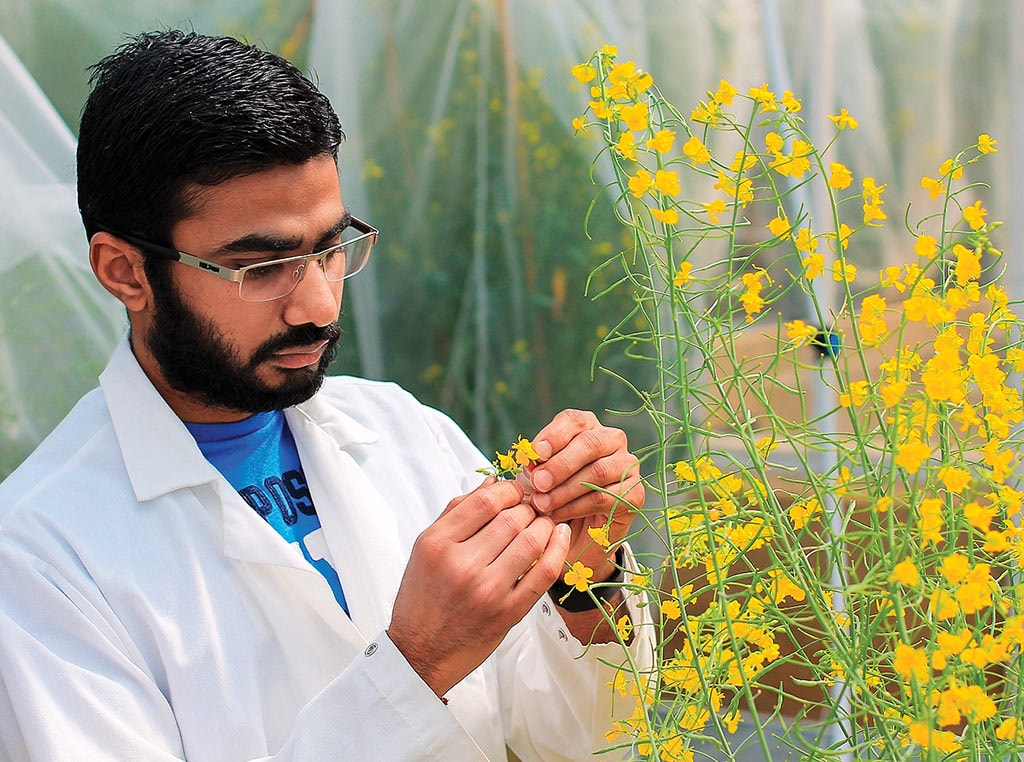
Above. Heat, cold, flooding and drought. The negative impact of each crop stressor can be significantly limited by manipulating epigenetic expression—a natural process quickly and cheaply transitioned to fields.
The two-step. Epigenetic crop lines of tomatoes and soybeans could be commercially available in the next five generations, with more and more coming out in rapid succession once proven effective on a large scale. The speed this technology can move is because it's plant breeding technology, not transgenics or making a genetically modified organism (GMO). As such, the technology isn't subject to regulatory approval. It's faster and cheaper than bringing a GMO to market.
"All the technology used in the process is already approved. The crops can go straight to the field. If seed escapes, it's not contaminating anything. This speeds things up significantly," Mackenzie says.
Mackenzie worries growers may be slow to adopt the technology. Hybrids are king. They're what farmers in Canada and the United States have used predominately for decades for crops like corn and canola. But epigenetics may work better in open-pollinated varieties. To farmers, reverting to open pollination may feel like a step back.
"We have to figure out where to put our time and energy to introduce this technology. We've avoided corn completely because farmers are married to hybrids. I don't see any divergence in the way corn is produced, it's one-tracked," Mackenzie says. There's wiggle room in other crops.
"Australia has seen such drastic climate change they are very open to open-pollinated varieties of canola, for example. Canola growers in North Dakota are really sweating due to serious drought. What if we could hand them an open-pollinated line that yields like a hybrid because of epigenetically enhanced resilience? And what if it's cheaper? Would growers accept that ideal?"
Another hold up is the generality of epigenetics. This isn't clean and exact science like gene splicing to make GMOs. You can't look at one link and say, "There it is, that's the one and here's exactly what it does." It's a multi-layered change. But much like medical doctors don't really know how anesthesia works, just that it does, Mackenzie knows—and has proven—that her technology works.
"The technology works in every crop we've tried: sorghum, soybeans, canola, tomatoes, all are more-or-less successful to a commercial level," she says. Tomatoes and soybeans are in testing with Epicrop Technologies on the path to commercialization. If epigenetically enhanced crops grow under ideal conditions, they see a yield boost. In stressful conditions, they see more significant yield differences where the epigenetic traits buffer against yield loss.
Mackenzie is next looking at strawberries and even poplar trees.
"Strawberry biology is completely different since they're propagated vegetatively. It's perfect for epigenetics. It's a high-value crop, it's a polyploid and it's vegetatively propagated, we could produce a lot of resilient progeny," she says. As for poplar trees, she thinks they could be made to be more efficient at carbon capture. "What if this technology could make forests more resilient to heat, drought, flooding or fire?"
The long-term goal is to give plant breeders more control of epigenetics to achieve the best plant. The critical test will be getting good, replicated field trials.
"We're getting there with soybeans and tomatoes. We want to be at double-digit yield increases. It will be a new dimension for plant breeders and farmers," Fromm says. ‡
Read More
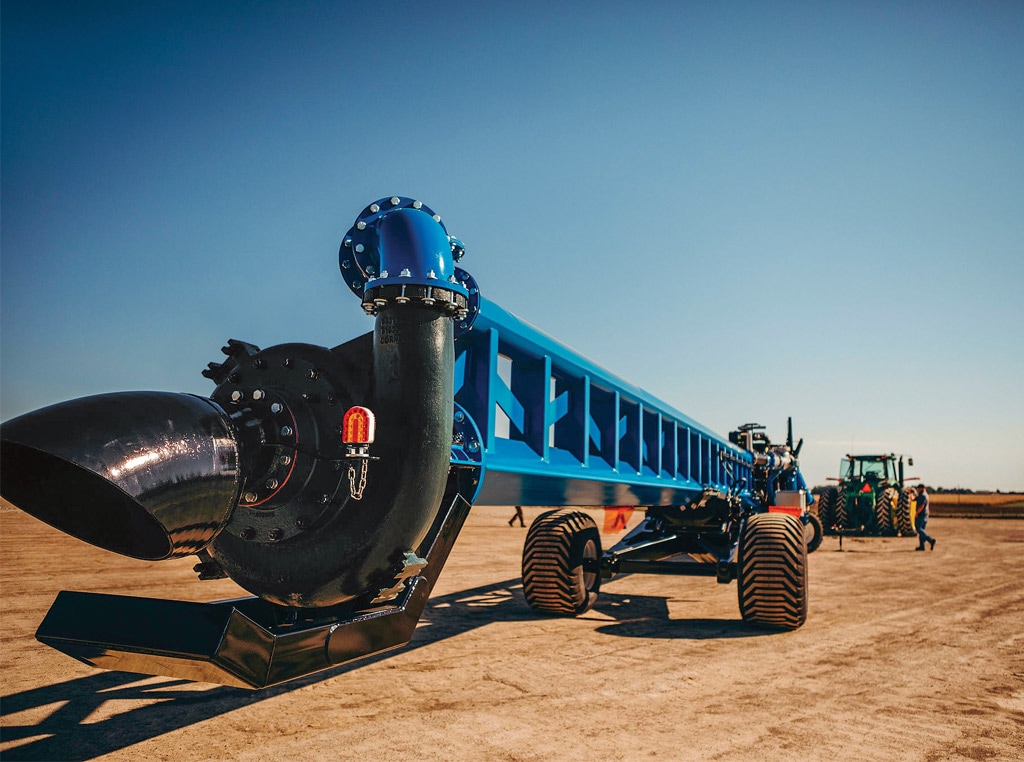
AGRICULTURE, SUSTAINABILITY
The Big Stick
One pump, one John Deere engine, one of a kind.

